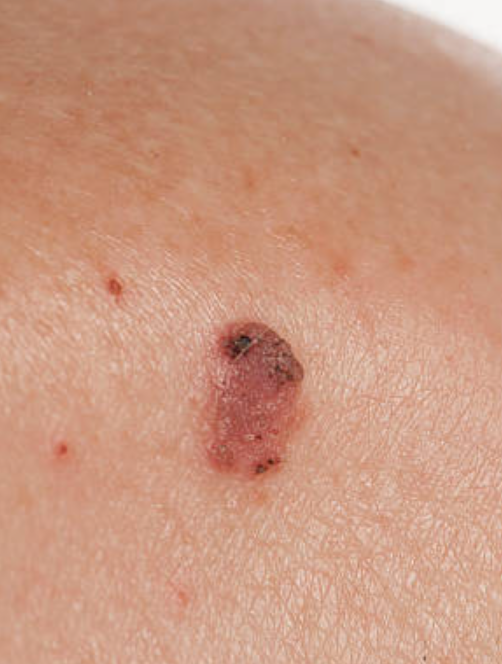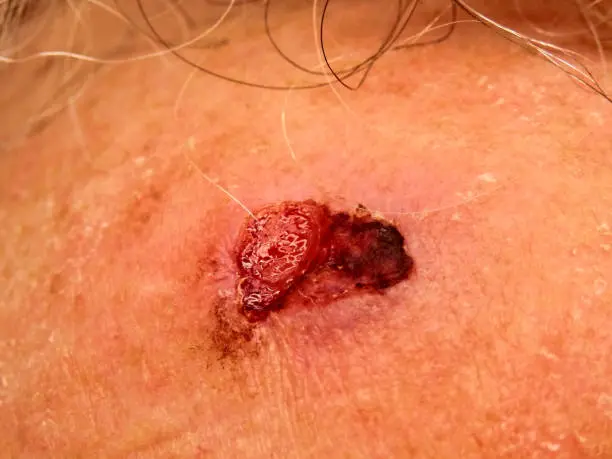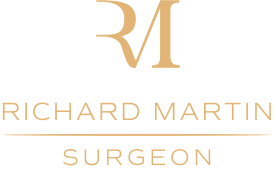Squamous Cell Carcinoma Treatment & Surgery
Diagnosing Squamous Cell Carcinoma (SCC)
This type of skin cancer affects areas of the skin that have had exposure to the sun. The most common area is the head and neck, but an SCC can also affect other parts of the body and, while very rare, can spread to lymph nodes or distant sites. The spreading (metastasising) can potentially be fatal if not successfully treated.
A SCC usually begins as a keratosis that looks like an area of thickened, scaly skin, it may then develop into a raised, hard lump which enlarges. SCCs can sometimes be painful. Often, the edges are irregular, and it can appear wart-like. They can appear like an ulcer that does not heal. A sentinel node biopsy may be used to aid in diagnosing SCCs.

Treatment Options for Squamous Cell Carcinoma (SCC)
All SCCs will need to be removed because of their potential for spread. SCCs are a spectrum of disease with well-differentiated ones easily curable through to high-risk SCCs (greater than 6mm thick, perineural invasion, lymphovascular invasion, poorly differentiated, etc.). High-risk SCCs may require a sentinel node biopsy or radiological imaging and treatment options can include immunotherapy with KEYTRUDA (pembrolizumab).
Removal of a SCC will require an appointment with a surgeon. This is a minor surgical procedure that will usually require a local anaesthetic and some stitches. Some complex or large SCCs will require a general anaesthetic for removal or reconstruction. Please make an appointment to discuss diagnosis, treatment and surgery for suspected Squamous Cell Carcinoma.

Other Skin Cancer Diagnosis, Treatment & Surgeries
Basal Cell Carcinoma (BCC)
Basal Cell Carcinoma present as small, pearly red lumps that don’t heal. While some are superficial and can be treated topically with creams or cryotherapy, others may require surgical intervention.
Melanoma
Often starting as a changing mole or a pigmented lesion on normal skin, melanoma is the most serious form of skin cancer.
Regular checks are an essential tool for early detection.

Mr Richard Martin
A New Zealand-trained General Surgeon, Associate Professor (Hon.) Richard Martin spent two and a half years at the Sydney Cancer Centre, specialising in melanoma and head/neck/thyroid/parathyroid surgery. During this time, he worked at the Sydney Melanoma Unit (now Melanoma Institute of Australia), the world’s largest melanoma treatment and research facility.
He has authored over 45 academic publications, frequently presents at national and international conferences, and is deeply involved in research and clinical trials. Additionally, he serves as an Associate Professor (Honorary) at the University of Auckland.
Book an appointment for an expert approach to treatments and surgical interventions.
Make an Enquiry
Please contact my rooms for an appointment to access my extensive experience.









